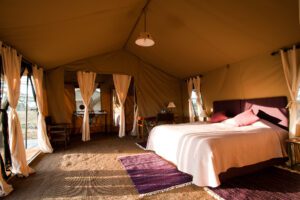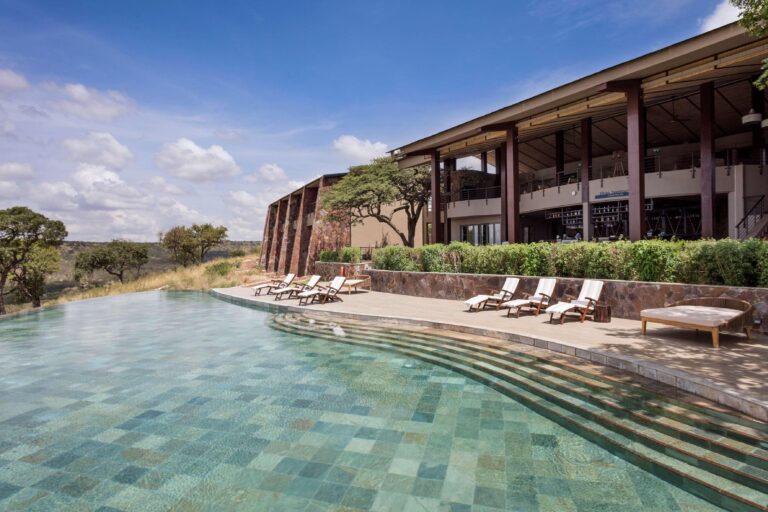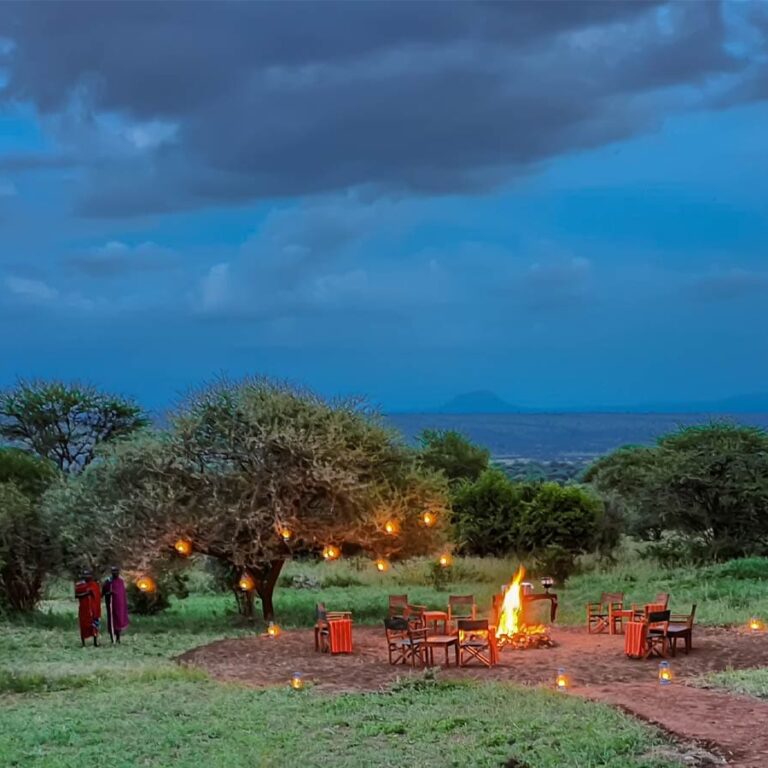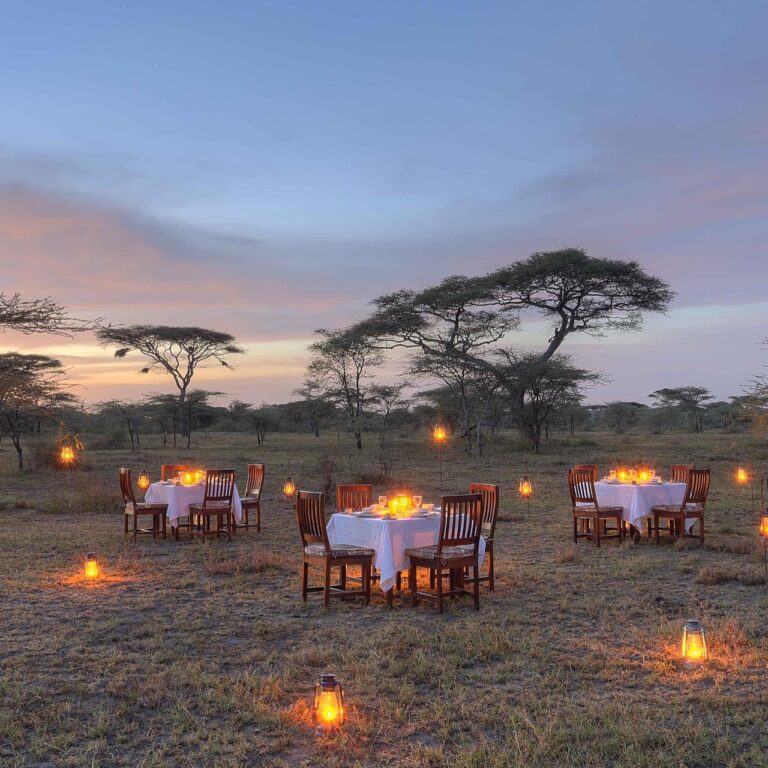The challenge of climbing Mount Kilimanjaro isn’t just about the physical exertion of the daily trek; it’s profoundly influenced by how well you rest. Each night on Africa’s tallest peak presents its own unique set of conditions, from the comforting sounds of the rainforest to the biting cold and thin air of the alpine desert. Understanding what to expect from your nightly accommodations, how to optimize your sleep, and the unique nocturnal experiences awaiting you is essential for a successful and enjoyable climb.
Sleeping on Kilimanjaro primarily involves camping in tents, with the exception of the Marangu route, which offers hut accommodations. Essential gear includes a four-season sleeping bag, a sleeping mat, and a warm hat. Staying warm and comfortable also involves limiting liquids before bed, using the toilet, and potentially using earplugs. This guide will delve into everything you need to know about sleeping on Kilimanjaro, ensuring you’re as prepared for your nights as you are for your days.
1. Sleeping in Tents vs. Huts: A Route-Dependent Choice
Your Kilimanjaro sleeping experience will primarily depend on the route you choose, as routes offer either permanent mountain huts or tented camps.
Sleeping in Huts (Marangu Route Only):
What to Expect. The Marangu Route is unique in offering basic, permanent wooden huts. These are dormitory-style, with bunk beds typically accommodating 4 to 20 climbers per room. Mattresses and pillows are provided, but you must bring your own warm sleeping bag. Huts have communal dining halls and basic toilet facilities (flush toilets at lower camps, pit toilets at Kibo Hut). They offer a solid roof over your head, providing good protection from rain and wind.
Pros. Offers more robust shelter from the elements, can feel more secure for some, and you don’t have to worry about tent setup.
Cons. Less privacy (shared rooms), can be noisy, and generally less flexible in terms of route and camp locations.
Sleeping in Tents (Machame, Lemosho, Rongai, Umbwe, Northern Circuit Routes):
What to Expect. For all other popular routes, accommodation is in high-quality, four-season expedition tents provided by your trekking company. These are typically spacious dome or tunnel tents, designed to withstand extreme mountain weather. Tents are usually shared by two climbers (single tents often available for a surcharge). Your porters pitch and take down the tents daily, so they are ready for your arrival. Comfortable sleeping mats are provided, but again, a warm sleeping bag is essential. Campsites are often chosen for their scenic beauty.
Pros. Offers a deeper, more authentic wilderness immersion, more privacy (just two per tent), and access to more scenic routes with better acclimatization profiles.
Cons. More exposed to cold and wind (though quality tents are robust), and sanitation involves portable chemical toilets.
2. What Gear to Pack for the Nights on Mount Kilimanjaro
Regardless of whether you’re in a hut or a tent, proper gear for cold nights is non-negotiable: For nights on Mount Kilimanjaro, you’ll need a warm sleeping bag, a sleeping mat (especially if not staying in huts), and potentially a sleeping bag liner for added warmth and hygiene. Layers of clothing, including thermal base layers, a down jacket or fleece, and waterproof outerwear, are crucial for combating the cold, especially on summit night. Don’t forget gloves, a hat, and a scarf, as well as a headlamp or torch for navigating in the dark.
Sleeping Bag. This is your most critical piece of night gear. It must be a high-quality, four-season down or synthetic bag rated for sub-zero temperatures. A rating of −15∘ C to −25∘C (0∘ F to −15∘ F) is generally recommended for Kilimanjaro, especially for summit night. Ensure it’s clean and in good condition.
Sleeping Bag Liner (Optional but Recommended). A silk or fleece liner adds warmth, keeps your sleeping bag cleaner, and is easy to wash.
Sleeping Mat/Pad (for tent routes). Your trekking company will provide a foam mat. An additional inflatable sleeping pad can significantly enhance comfort and insulation from the cold ground.
Warm Sleeping Clothes. Dedicate a specific set of clean, dry thermals (top and bottom) and warm socks specifically for sleeping. Never sleep in the clothes you hiked in, as they will retain sweat and make you cold.
Warm Hat/Beanie. A significant amount of body heat is lost through your head. A warm hat is essential for sleeping comfortably, especially at higher altitudes.
Gloves/Mittens. For summit night, you might even wear your warmer gloves to bed.
Hot Water Bottle. A fantastic tip! Your cook can fill a Nalgene bottle with hot water before bed. Tucked into your sleeping bag, it acts as a personal heater for several hours.
Earplugs/Noise-Cancelling Headphones. In both tents and huts, noises (wind, other campers, animal sounds) can disrupt sleep. These are invaluable for peace and quiet.
Eye Mask. For light sleepers, to block out ambient light (including that from other headlamps).
3. Why It’s Hard to Sleep at High Altitude
Difficulty sleeping is one of the most common challenges on Kilimanjaro, particularly at higher camps. This is almost entirely due to the effects of altitude and the associated changes in your body.
Reduced Oxygen. As you ascend, the air pressure drops, meaning there’s less oxygen available with each breath. Your body works harder to get enough oxygen, leading to increased heart rate and breathing. This physiological stress can make it hard to relax and fall asleep.
Cheyne-Stokes Breathing. A common and often alarming symptom of altitude, this is a pattern of periodic breathing characterized by a gradual increase in breathing depth and rate, followed by a decrease, and then a brief period of apnea (stopping breathing). This cycle can wake you up feeling short of breath, even if it’s generally harmless.
Disrupted Sleep Cycles. Altitude can interfere with normal sleep architecture, reducing the amount of deep sleep and increasing awakenings.
Cold. Despite good gear, the plummeting temperatures at night can make it difficult to get comfortable.
Anxiety/Excitement. The anticipation and physical demands of the climb can also contribute to restlessness.
4. 5 Tips for Sleeping Soundly on Kilimanjaro
While perfect sleep might be elusive at altitude, these tips can significantly improve your chances of a restful night:
Hydrate, Hydrate, Hydrate (but wisely!). Drink plenty of water throughout the day to aid acclimatization, but taper off your fluid intake a few hours before bed to minimize middle-of-the-night toilet trips. This is a delicate balance, as dehydration worsens altitude sickness.
“Climb High, Sleep Low” (where possible). This acclimatization strategy is built into routes like Machame and Lemosho. By hiking to a higher altitude during the day and then descending to sleep at a lower elevation, your body has more time to adapt, which aids sleep.
Use Your Warm Sleeping Clothes and Hot Water Bottle. As mentioned above, a dedicated, dry set of warm sleepwear and a hot water bottle are incredibly effective at keeping you warm and cozy, promoting better sleep.
Manage Altitude Symptoms. Discuss any symptoms with your guide. They might recommend a slower pace, or in some cases, medication like Diamox, which can help with acclimatization and often improves sleep by regulating breathing at altitude.
Practice Relaxation Techniques. Deep breathing exercises, meditation, or gentle stretching before bed can help calm your mind and body, making it easier to drift off. Avoid caffeine in the afternoons and evenings.
5. Things We Love About Night-Time on Kilimanjaro
Despite the challenges, the nights on Kilimanjaro offer unique and unforgettable experiences: Night-time on Kilimanjaro offers unique and cherished experiences, including breathtaking stargazing opportunities and the magic of sunrise from the summit. Climbing at night, especially during a full moon, provides a surreal and beautiful experience, illuminating the path and glaciers. The frozen ground at higher altitudes can make the ascent easier, and having daylight for the descent is crucial for safety.
The Starry Sky. Far from any light pollution, the night sky on Kilimanjaro is absolutely phenomenal. The Milky Way stretches across the inky blackness, and countless stars shine with breathtaking clarity.
The Silence of the Mountain. Beyond the sounds of wind or occasional wildlife, there’s a profound quietude that descends upon the mountain after dark, a serene counterpoint to the day’s exertions.
The Camp Glow. Seeing the clusters of tents or the illuminated huts, often with distant lights from other groups, creates a sense of camaraderie and shared endeavor against the vast darkness.
Anticipation of Summit Night. As you near the summit, the pre-dawn wake-up for the final push fills the air with a palpable sense of excitement and determination, a unique energy that is both daunting and exhilarating.
6. Kilimanjaro Summit Night
Summit night is arguably the most challenging part of the entire climb, and sleep plays a critical role. Kilimanjaro summit night is the most challenging part of the climb, typically beginning around midnight for a grueling 6-8 hour ascent in the dark and cold. Climbers face freezing temperatures, strong winds, and the physical and mental strain of altitude sickness. The main reason for this nighttime ascent is to reach the summit by sunrise, enjoying the spectacular views of the sun illuminating the glaciers and the surrounding landscape.
Minimal Sleep. The night before the summit push (spent at Kibo Hut or Barafu Camp) is usually very short, often only 2-4 hours, due to the early start (typically around midnight). This means rest, rather than deep sleep, is the primary goal.
Extreme Cold. Temperatures are at their lowest, often dropping to −15∘ C to −25∘C (5∘F to −15∘F) or even colder. Layering up (including all your warmest summit gear) and using a hot water bottle are crucial.
Altitude Impact. At $4,700m (15,400 ft) at Kibo Hut or 4,670m(15,300ft) at Barafu Camp, the effects of altitude are significant, making even brief periods of sleep difficult. Many climbers only manage to doze.
Mental Fortitude. The lack of sleep, extreme cold, and physical exertion combine to make summit night a true test of mental strength. Focusing on one step at a time, staying positive, and trusting your guides are paramount.
7. Kilimanjaro Full-Moon Climbs
For an even more magical summit experience, many climbers opt for a full-moon climb.
Natural Illumination. The full moon provides significant natural light, illuminating the treacherous scree slopes of Kibo and the surrounding landscape. This reduces reliance on headlamps and offers breathtaking views of Mawenzi Peak and the plains below.
Enhanced Visibility. The moonlit ascent can feel less daunting as you can see your surroundings better, offering a unique perspective of the mountain at night.
Increased Popularity. Full-moon dates are highly sought after, so you can expect more climbers on the route during these periods. This also means booking well in advance is essential.
Sleeping on Kilimanjaro FAQs
When sleeping on Mount Kilimanjaro, most climbers sleep in tents at designated campsites, with the exception of the Marangu route, which uses huts. You’ll need a warm sleeping bag, and a sleeping mat is usually provided. It’s also a good idea to limit liquids before bed to minimize nighttime bathroom trips.
What are the main types of accommodation on Kilimanjaro? There are two main types: permanent mountain huts (only on the Marangu Route) and tented camps (used on all other popular routes like Machame, Lemosho, and Rongai).
Do I need to bring my own sleeping bag for Kilimanjaro? Yes, absolutely. Whether you’re staying in huts or tents, you must bring your own warm, four-season sleeping bag rated for sub-zero temperatures (typically −15 ∘ C to −25 ∘ C or 0 ∘
F to −15 ∘F).
Is it difficult to sleep at high altitude on Kilimanjaro? Yes, it is common to experience difficulty sleeping at high altitude due to reduced oxygen, increased heart rate, and disrupted sleep cycles (like Cheyne-Stokes breathing).
What are some tips for better sleep on Kilimanjaro? Key tips include staying well-hydrated during the day (but tapering fluid intake before bed), using a warm sleeping bag with dedicated sleep clothes, utilizing a hot water bottle, wearing a warm hat, and using earplugs or noise-cancelling headphones.
What’s the difference between huts and tents in terms of privacy? Huts on the Marangu Route offer dormitory-style sleeping with multiple climbers per room, providing less privacy. Tented camps typically have two climbers per tent, offering significantly more privacy.
Are there toilets available at the campsites/huts? Yes, there are facilities. Lower huts on the Marangu Route have flush toilets, while Kibo Hut has pit toilets. Camping routes typically use private, portable chemical toilet tents.
Can I charge my electronic devices while sleeping on Kilimanjaro? Generally no. Huts have basic solar lighting but no outlets. Tents have no power. You will need to bring a high-capacity power bank for charging your devices.
Why is “summit night” sleep so challenging? The night before the summit push is typically very short (2-4 hours of rest, not deep sleep) due to the early start. It’s also the coldest and highest camp, intensifying the effects of altitude and cold, making true sleep very difficult.
What are the benefits of a full-moon climb? Full-moon climbs offer significant natural illumination for the summit ascent, reducing reliance on headlamps and providing breathtaking views of the mountain landscape under moonlight.
Is it true that guides provide a sleeping mat on camping routes? Yes, reputable trekking companies will provide comfortable sleeping mats (often foam) for insulation and comfort in your tent. However, some climbers choose to bring an additional inflatable mat for extra cushioning.
Where do you sleep when climb kilimanjaro? When climbing Mount Kilimanjaro, you’ll sleep in either a mountain hut or a tent, depending on the route you choose. The Marangu Route is the only one that offers hut accommodations. All other routes require camping in tents at designated campsites. On Kilimanjaro, you’ll either sleep in mountain huts or tents, depending on the route you choose. The Marangu route is the only one that offers hut accommodations, while all other routes utilize tented camps. Porters will handle the setup and breakdown of the tents for you on all routes except Marangu.
- What happens to your body when you climb Kilimanjaro?
- Toilets On Kilimanjaro And What To Expect
- Climb Kilimanjaro and sleep in the crater
- Hygiene During Kilimanjaro Expeditions | Essential Tips.
- Unveiling the Finest Sleeping Bags for Kilimanjaro Expeditions
Final thought
Sleeping on Kilimanjaro is an integral part of the climbing experience, presenting its own unique set of challenges and rewards. By understanding the types of accommodation, packing the right gear, and implementing strategies to combat altitude’s effects, you can significantly improve your comfort and ability to rest. The cold, the thin air, and the pre-summit jitters are all part of the journey. But the magical starry nights, the camaraderie of your fellow climbers, and the anticipation of dawn breaking over Africa’s highest point make every restless moment worthwhile. A well-rested climber is a stronger climber, and a successful summit often begins with a well-planned night.








